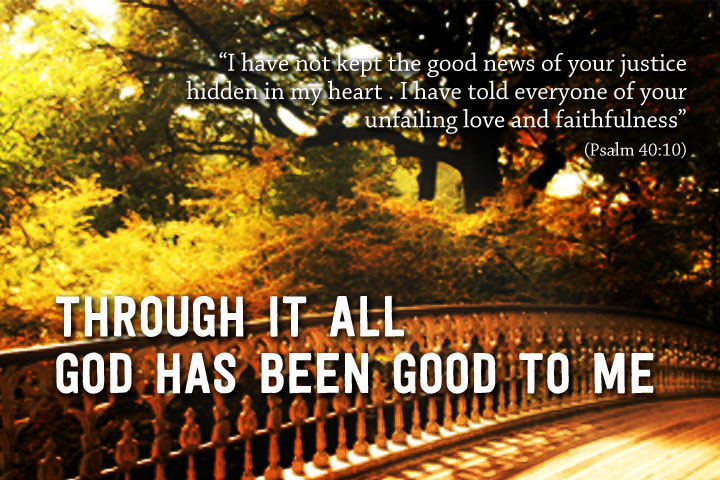My love of the kitchen goes back to my infancy, back when grandma and grandpa still looked after me while my parents worked. I lived a happy childhood in the big grey family home located on the mountainous, sparsely populated fringe of southern Mexico City. We lived on a very quiet house located on a very quiet street were hardly any cars passed by; getting the mail was the biggest event of the day (the mail was delivered by a guy in a motorcycle), and really—aside from the variations in weather that could go from intensely sunny to oppressively gloomy or even stormy from one day to the next, there was no change or variation in the tenor of life. It was a very gentle time.
My life centered about everything related to the house. Whether it was seeing to the upkeep of the family home, plants, and sundry pets with my grandfather, or “helping” with laundry or the cleaning with grandmother, I learned to love being at home—especially in the kitchen.
I was grandmother’s assistant. I remember the infinity of peas we shelled together, as well as the never-ending rivers of various soups we prepared: vegetable soup, tortilla soup (which we call chilaquiles), potato soup, fideos, coditos, chicken caldos, alphabets, et al. We peeled potatoes and carrots by the truckloads, de-feathered chickens galore, and when I, the humble neophyte, was deemed ready, I was given a knife and taught how to strip a cactus of its thorns. After all the kitchen activities were completed, with kitchen wiped clean and the dishes put away, grandma would make some tea, in preparation for the family to arrive and find the house filled with the delicious aroma of chamomile.
Grandfather was instrumental in fostering in me a love for experimentation the kitchen. When Grandma was not around he would steal in there and make various concoctions using mysterious herbs he’d gathered in the mountain. I witnessed many explosive reactions in the kitchen when he jammed up the blender with fruit for a refreshing mid-day drink. He would leave a mess then just as he did whenever he chopped up an onion and made a giant omelet for the two of us—wrong, the three of us. He always shared his repast with the cat (as did the cat with us now and then: whenever grandfather bought him a can of sardines, grandpa and I ate our share with gusto along with plenty of warm tortillas and pico de gallo). Grandpa taught me that food was meant to be shared.
My formal training in the kitchen began with mother once I was a teen, but by that time I was already aware of the most important rules of the kitchen, besides “safety first” of course:
Cook from the heart. If you’re not happy, your food won’t be good
And the corollaries to that are as follows
- If you’re angry, eggs will be spoiled, and hot food (as in spicy food) will burn the mouth
- If you’re feeling lazy or don’t feel like cooking, your rice will not properly cook and will burn on the bottom.
- If you’re sick, don’t even step foot in the kitchen. Everything will go to the dogs.
* * *
Everything in me was averse to cooking one day last week. I was tired from being in front of the computer working on a design, and trying to communicate with a finicky client on a rush order. I was getting a pounding headache too. I did not want to deal with the kitchen, and cleaning up after cooking on top of that. But I didn’t want to eat tacos from across the street, and besides, my mother who was coming from work deserved more than Del Taco. So on I went to the kitchen and gathered all my ingredients on the countertop.
And then I thought.
How am I gonna cook if I’m feeling like this? The way I’m feeling, my rice is not gonna cook well, my food could go to the dogs (figuratively speaking, for we have no dogs). I can’t do it!
I looked at my ingredients: the finest vegetables and legumes, red-ripe tomatoes, smiling white onions, gentle mounds of rice, tumbling potatoes. Perfectly good ingredients bought with hard-earned money. They deserved my respect.
And so, rather than it being an exercise of fake it (i.e. happiness) ‘till you make it, I began preparing the meal with care. I wasn’t particularly happy, and I was still tired and my head was hurting more and more with the heat of the oven, but I concentrated on doing my best on preparing every dish. The result was food that really tasted good.
I revisited my idea on the attitude of cooking. And I thought that perhaps it could be tweaked a bit, or maybe changed altogether.
* * *
Devotion goes past emotion.
How else can a chef consistently make good food even when his personal life is bleak, and he knows that the woman he loves won’t call him again? Or how can a musician play the performance of her life when she knows that on a hospital room in a far off country a loved one is dying? It’s all about devotion. Giving something the time and care and energy that it deserves in order for it to be done right, even when life is not making it easy for you to do so, is devotion.
* * *
We moved to California, and ever since I’ve never returned to my family home. I was blessed to see my grandparents every few years or so, and the love that I had for them only increased with time and distance.
When my grandma died after struggling with cancer, my world as I knew it seemed to shatter. It was seriously one of the most difficult times of my life, and for a while I thought I could not comprehend God. I could not draw to him. How could he take her away like that? Why did she have to go through such intense suffering, such anguish? Life did not make it easy for me to do the right thing: which was to draw to him and trust him.
When we as humans rely on emotion or on “feeling” a need in order to draw closer to God, we will just drift. Devotion goes past the emotion; it goes past discipline, too. Emotion will mean that you will be led this and that way because your fickle and volatile heart dictates what you do. Discipline often makes it necessary to remove the heart from the equation, because it’s doing what one ought to do for the sake of the better good in the end. But devotion is all about the heart put in its proper place.
So my attitude was, I’m angry at you God, I don’t understand you, or your motives, and perhaps I never will. But don’t let this be a matter to break us apart. Please give me solace, and continue to anchor my life, continue to give it purpose. Continue to guide me as I open your word and try to learn your will for me today…
“Rejoice in the Lord always; again I will say, rejoice…do not be anxious about anything, but in everything by prayer and supplication with thanksgiving let your requests be made known to God. And the peace of God which surpasses all understanding will guard you hearts and your minds in Christ Jesus.” Phil 4:4-7
What is that? You guessed it–Devotion! Despite what life throws at you, your heart and mind is kept safe in Christ. That is a promise we can’t do without.
* * *
Grandma has passed away.
I miss her, but I have placed my hope in heaven. My heart too. One day Grandma and I will be reunited, and I’m sure that my mansion in heaven will have a HUGE kitchen (or an equivalent of such). And guess what I’ll be doin’?
That’s right. Cooking.
Oh, and by the way…
You’re invited.



